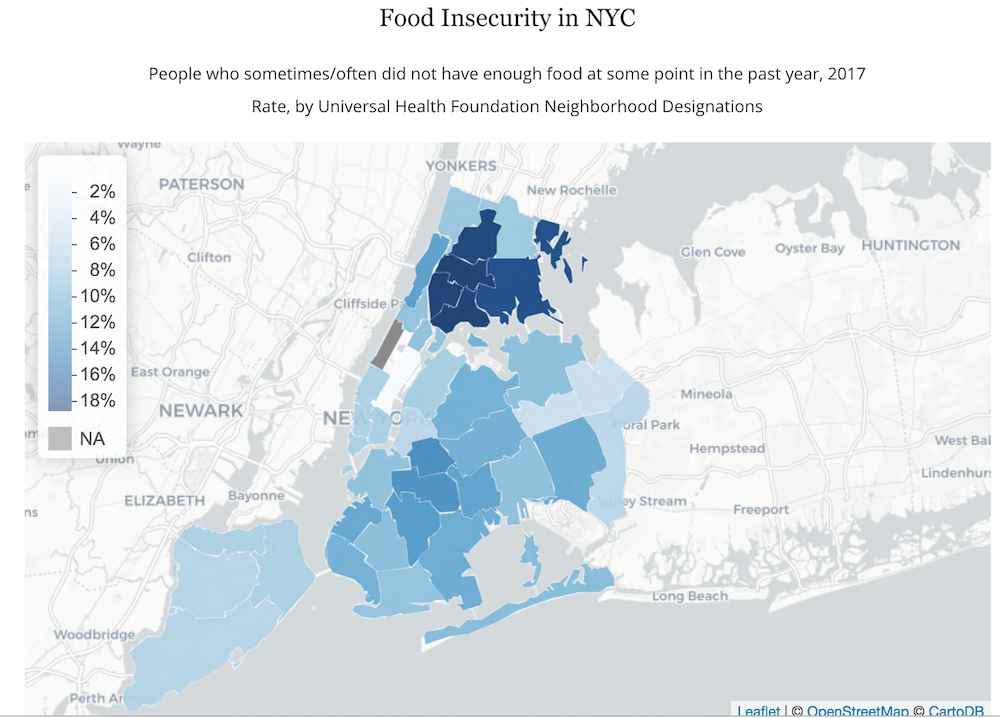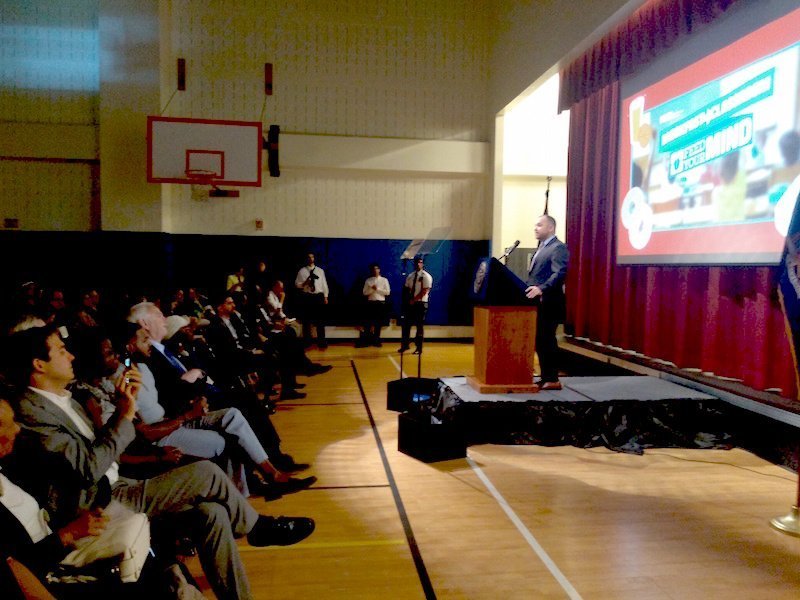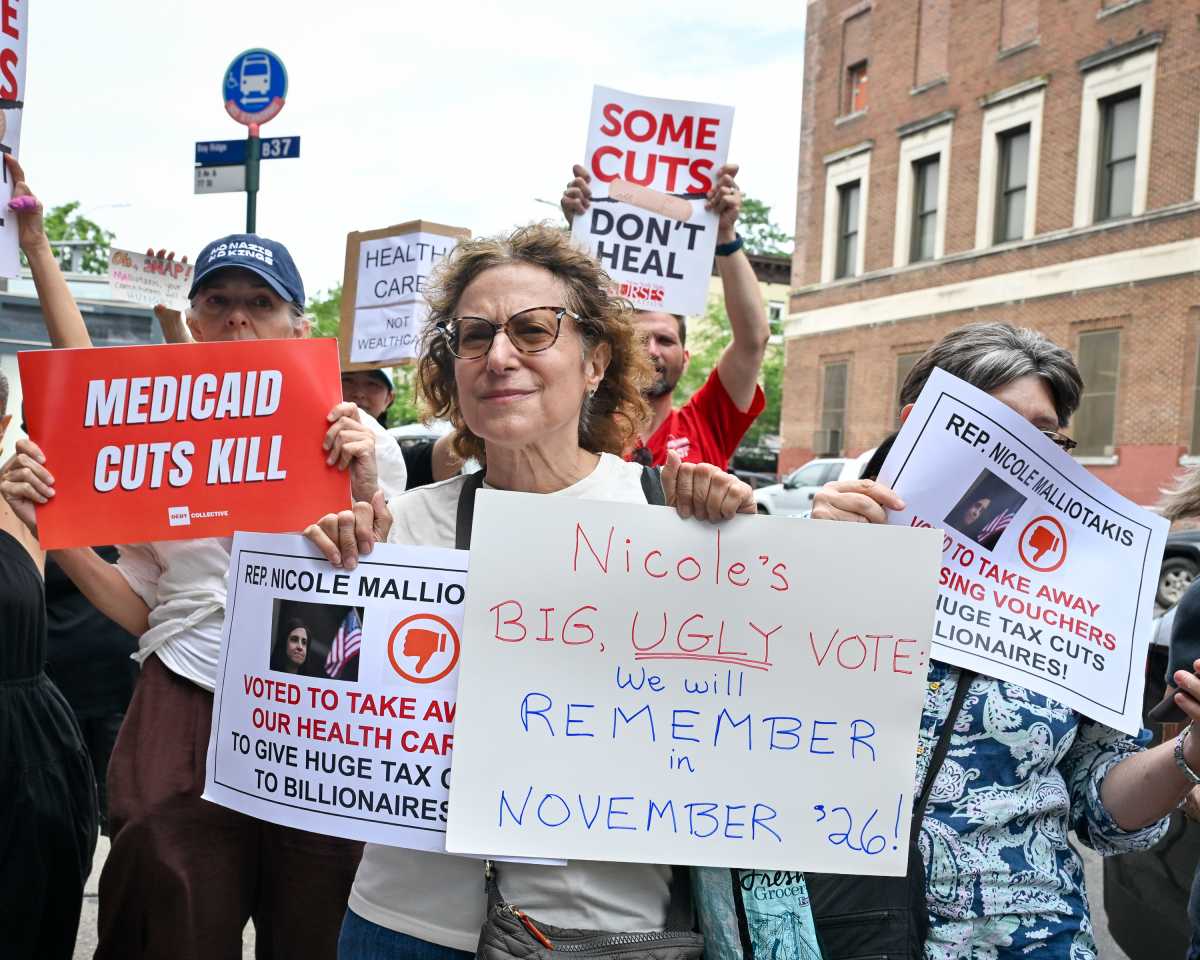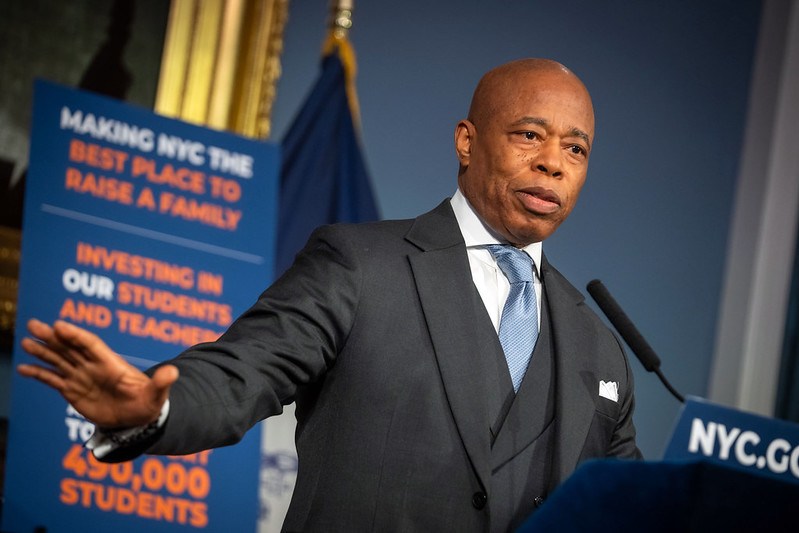The City Council is considering the creation of an Office of Urban Agriculture (OUA) to oversee the rapidly expanding urban agriculture field through further empowerment of community gardens, according to a trailblazing report outlining the city’s current hunger problems and potential solutions.
City Councilmember Rafael Espinal (D-Bushwick, East New York, Cypress Hills), who along with Brooklyn Borough President Eric Adams, has been leading the way on the issue of healthy food equity. City Council Speaker Corey Johnson and Espinal released the report dubbed Growing Food Equity in New York City yesterday to a packed room at the Cypress Hills Community School P.S. 89 at 265 Warwick Street in Cypress Hills.

“Urban agriculture is the most underutilized tool we have to close the freshness gap in low-income communities. But momentum has been building, due in large part to the city’s existing infrastructure of community gardens, rooftop farms, and indoor hydroponic farming. Together, we have been building a movement that demands our right to eat, and to eat well,” said Espinal.
“I passed legislation that set up an urban agriculture website to create a one-stop-shop for information to support local farms. The website helped outline our vision, but it was only the first step in starting the conversation. Last month, we held a hearing on the bill that will require the city to come up with a comprehensive urban agriculture plan. We’ve clearly done the work, but we’re far from finished. Today, I’m proud to stand with the Speaker to announce that not only will we have a plan, but we will have an Office of Urban Agriculture to enact that plan,” said Council Member Rafael Espinal.
According to the proposal in the report, the OUA will be charged with creating an Urban Agriculture Plan in which it will view urban growers as climate resilience stewards and recognize that parks, community gardens, urban farms, and green roofs are key tools in combatting and adapting to climate change.

The OUA will also coordinate with the city’s Parks Department to require the existing Green Thumb program to collect and maintain metrics on the ecological, resiliency, educational, cultural, health, and community development value of community gardens throughout the city.
Additionally, the OUA would oversee farming education for school-age children, adult urban agriculture education and foster economic empowerment for community gardeners to earn income from produce grown or education provided on community garden land.
The report outlined how roughly 1.5 million New Yorkers rely on what was once called food stamps and is now the Supplemental Nutrition Assistance Program (SNAP), the nations primary anti-hunger program.
The report also noted a recent City University of New York (CUNY) student survey showing that 48% of respondents experienced food insecurity in the last month. To help combat this, the city council allocated $1 million under the Access to Healthy Food and Nutritional Education initiative to fund a pilot program to increase food access to CUNY students experiencing food insecurity.

“New York City is one of the richest cities in the world. Yet more than one million of our residents are considered food insecure. That’s unacceptable. Food is a human right, which means as a city we need to establish food policies to help ensure that none of our residents are going hungry or relying on unhealthy foods to survive because they don’t have the means or access to nutritious meals. These proposals are my vision for food justice for New York City. I want to create a better New York where equitable food policies are front and center in everything we do,” said Johnson.
Other initiatives highlighted in the report include expanding:
- The Health Bucks Program, coupons that are distributed to low-income New Yorkers to buy fruits and vegetables at farmers’ markets;
- Deli-style cafeterias in middle and high schools that have dramatically increased fruit and vegetable consumption among students;
- Nutrition programs in schools; and
- Scratch-cooked meals at public schools.
The council will also consider legislation requiring that information about summer meals be sent home to families and will start a pilot that will allow their parents to get free meals as well. IT will also partner with the Department of City Planning to expand the list of neighborhoods that are eligible to receive the Food Retail Expansion to Support Health (FRESH) zoning bonus, to more closely align with the areas of highest need where the financial incentive is mapped. A new Supermarket Needs Index (SNI) is being created to inform expansion.
“Access to adequate nutritious food is a human right,” Johnson said. “This principle isn’t just for developing countries. It’s one that we must follow right here in New York City; one of the richest cities in the world. Over one million New Yorkers are food insecure. That’s unacceptable.”










